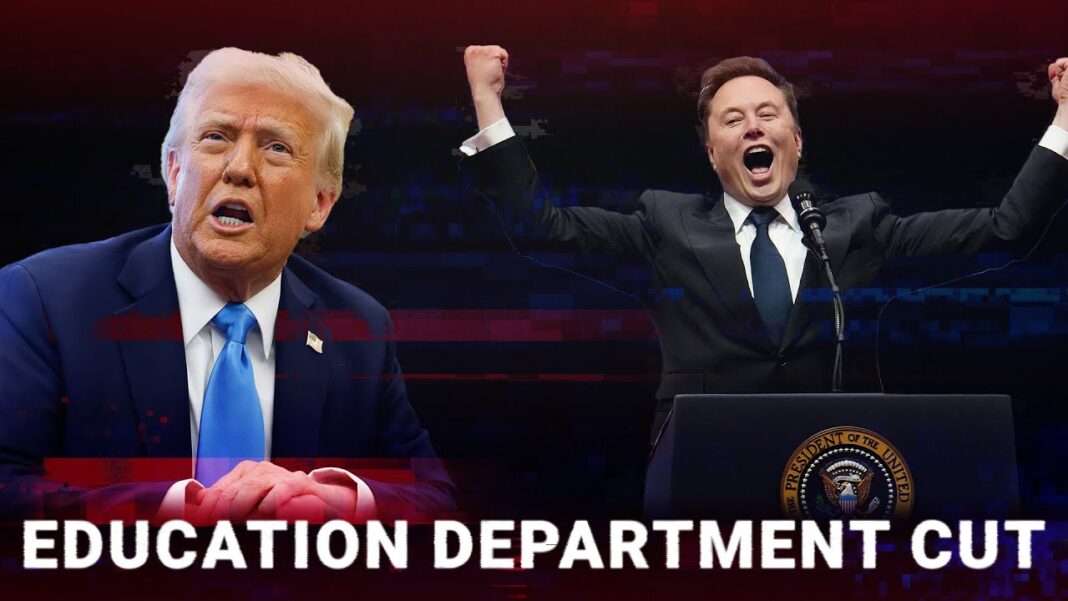The Department of Education is now at the center of a major political controversy. Democratic lawmakers attempted to meet with senior leadership but were blocked from entering the headquarters. Security and Homeland Security officers prevented access, citing undisclosed orders. This event has fueled debate over the potential dismantling of the department and the future of federal education programs.
Lawmakers Blocked from Entering the Department of Education
Democratic members of Congress gathered outside the Department of Education to demand answers regarding proposed funding cuts. Security officers informed them that no entry was permitted without authorization. When asked under whose authority they were acting, security personnel refused to provide clear answers.
This incident marks the fourth time that lawmakers have been denied access to federal buildings. This restriction raises concerns about transparency, government oversight, and legislative authority. Lawmakers have already begun legal preparations to challenge these actions in court.
Why Is the Department of Education Under Threat?
The discussion around dismantling the Department of Education stems from Project 2025, a strategic plan by the administration. The goal is to restructure federal agencies, shifting responsibilities to states and local governments.
Critics argue that this move lacks a concrete plan and will result in severe consequences. The Department of Education plays a critical role in managing federal student loans, Title I programs, and disability accommodations. Removing federal oversight could lead to increased educational disparities.
The Impact on Students, Parents, and Educators
If the department is defunded, two scenarios are likely:
- Programs will disappear. Many initiatives such as student loan aid, Title I funding, and special education services will cease to exist.
- State and local taxes will increase. School districts will need additional funding to maintain services, likely leading to higher property taxes.
Public education serves 50 million students in the U.S. Rural communities without charter schools will struggle to adjust. Special education programs that provide essential accommodations for 7.5 million students could also face funding shortages.
The Debate Over Federal vs. Local Education Control
Supporters of dismantling the Department of Education argue that education decisions should be handled locally. However, many aspects of education funding—such as student loans and grants—require centralized oversight. Block grants are being proposed as an alternative, but past implementation of such grants has led to underfunded programs.
Federal funding ensures that students in low-income areas receive support through Title I funding. Without it, schools in wealthier districts will thrive while underprivileged communities struggle to meet basic educational standards.
The Role of Elon Musk and the Trump Administration
Billionaires like Elon Musk and former President Trump have pushed for reduced federal oversight in multiple sectors, including education. Musk has publicly dismissed the Department of Education, claiming that no such department should exist.
However, critics argue that privatizing education benefits the wealthy while neglecting middle- and lower-class families. Private and charter schools lack the capacity to serve all students, leaving millions without access to quality education.
Future Predictions: What Comes Next?
The dismantling of federal education programs will have far-reaching consequences. Several outcomes are possible:
- Legal battles: Lawmakers and advocacy groups will likely challenge these changes in court.
- Increased local taxes: States will need to find new funding sources for education.
- Educational inequality: Wealthy districts may continue to thrive while underfunded schools face staff and resource shortages.
- Political ramifications: The debate over education policy will play a crucial role in upcoming elections.
Parents, teachers, and students should remain informed and prepared for potential shifts in education funding.
Disclaimer
This article provides an analysis of ongoing political decisions related to education funding. Readers should consult official reports and policy documents for the latest updates.
Liam Baker is a labor market researcher with expertise in workforce automation and employment trends. His insights have appeared in multiple HR and economics publications.




